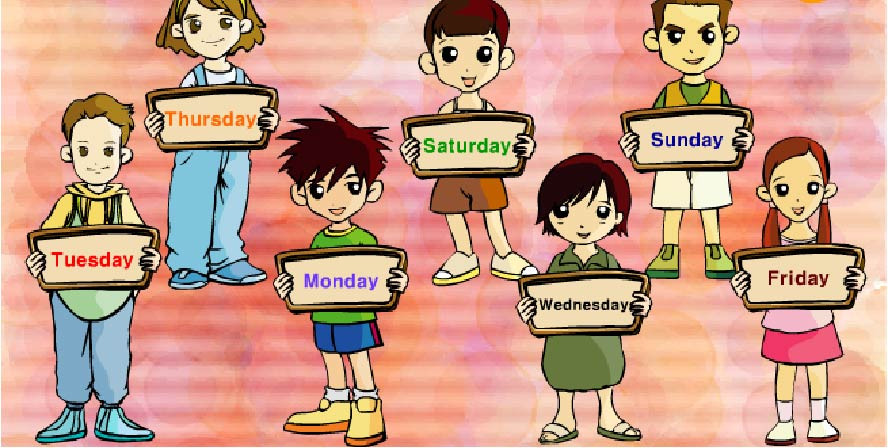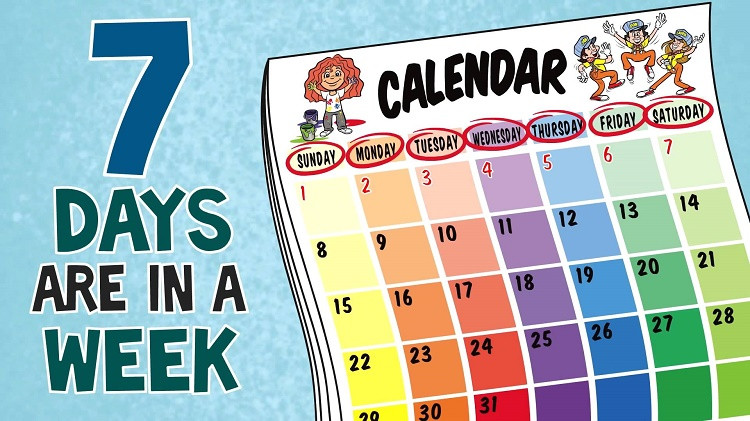Things in English and how to read correctly, write correctly, remember words quickly

Things in English are familiar vocabulary that we use every day. If you are not confident that you read correctly, write correctly or are afraid that you will not remember the words after studying forever, please refer to the article below.
1. Things in English: Vocabulary and pronunciation
You see the abbreviation for something of the week but forget what it is? You see a very familiar word but don't remember the pronunciation? To remember how to write (full spelling & abbreviations) as well as how to read the names of the days of the week in English, EnglishTop We would like to share with you a short, easy-to-memorize summary below!
|
Rank |
Things in English | Spelling | Abbreviate th in English |
|
Monday |
Monday | /ˈmʌn.deɪ/ | MON |
| Tuesday | Tuesday | /ˈtjuːzdeɪ/ | TUE |
| Wednesday |
Wednesday |
/ˈwɛdənzdeɪ/ | WED |
|
Thursday |
Thursday | /ˈθɜːzdeɪ/ | THU |
| Friday | Friday |
/ˈfɹaɪdeɪ/ |
FRI |
|
Saturday |
Saturday |
/ˈsætədeɪ/ | SAT |
| Sunday |
Sunday |
/ˈsʌndeɪ/ | SUN |
Outward remittance: Learn how to say the days of the week in standard English with the 3 notes below.
-
We use prepositions “On” before English days: On Saturday, On Tuesday,…
-
From Monday to Thursday in English is called: weekday
- Saturday and Sunday in English are called: weekend
-
2. How to write things in English
-
2.1. How to write things in English
-
How to write English words with day, month and year: Day, month + day (serial number), year

How to write things in English
For example:
-
Friday, December 18th, 2020
- Monday, October 26th, 2020
2.2. Prepositions with things in English
When writing the days of the week in English, even when they stand alone or with the day or month, use the preposition "ON" before the days:
-
On Monday
-
On Tuesday
-
On Wednesday
-
On Thursday
-
On Friday
-
On Saturday
-
On Sunday
We can also use “every” before things:
-
Every Monday
-
Every Tuesday
-
Every Wednesday
-
Every Thursday
-
Every Friday
-
Every Saturday
-
Every Sunday
2.3. Differences in the way of writing dates in British English and American English
We all know that the biggest difference between British English and American English is vocabulary. However, it doesn't stop there, the way these two countries write days and months in English also has significant differences. Therefore, you need to clearly determine which country's standards you are following to avoid confusion during the learning process.
| British: DD – MM – YYYY | American: MM – DD – YYYY |
| The Twentieth of November, 2020 | November the Twentieth, 2020 |
| 20th November 2020 | November 20th, 2020 |
| 20 November 2020 | November 20, 2020 |
| 20/11/2020 | 11/20/2020 |
| 20/11/20 | 11/20/20 |
3. Some notes on how to write dates according to British English standards:
- In British English, mainly used in Australia, the day is followed by the month, then the year.
- If you want to add the day of the day, it should come before the date and should be separated by a comma or joined by “the” and “of”. Example: The Twentieth of November, 2020.
The most commonly used delimiter in date formats is the slash (/). However, you can also use a hyphen (-) or a period (.).3. How to ask about things in EnglishThings in English are very popular and common topics in everyday communication. You need to firmly grasp how to ask about things to communicate more confidently!
How to ask about things in English
Question:
-
What day is it?
- What day is it today?
Reply: It is +
For example:
A: What day is it?
B: It’s Thursday.
4. Some contexts using vocabulary of various things in English
Things in English are vocabulary words that are used frequently in everyday life. Memorizing and knowing how to apply sentence patterns in specific contexts helps you communicate more fluently when you need to mention things in English. Here are some common situations where things in English are used:
- When scheduling meetings at work:
For example:
- We will have a meeting this Friday.
- When scheduling a meeting with partners and customers:
For example:
- The appointment with Mr.Smith from Red Star Corporation will be held next Monday.
- When talking about an event that has happened or is about to happen:
For example:
- I visited my grandparents last Sunday. I will have a Math test this Thursday.
Phrases related to English days:
-
Days of the week (usually from Monday to Sunday)
-
Weekdays (mainly Monday to Friday)
-
Weekend (Saturday and Sunday)
-
A week tomorrow: tomorrow will be 1 week

